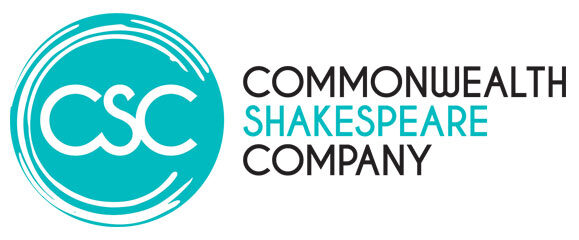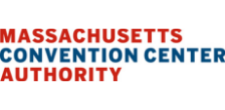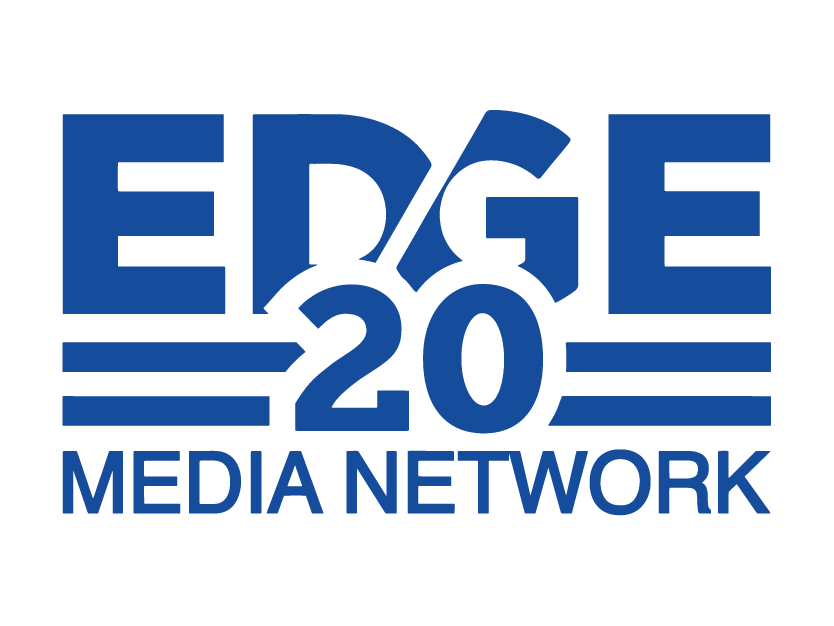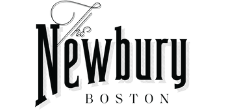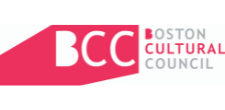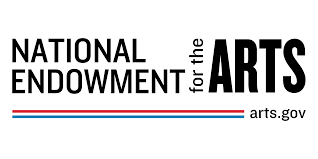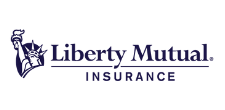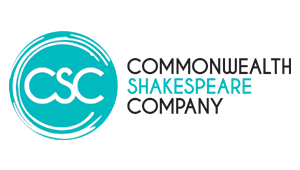This page serves as an archive of our previous Commitments to Diversity, Equity, Inclusion and Access. To see the most up-to-date version, visit commshakes.org/deia.
Our expressed commitment to diversity, equity, inclusion, and access is an iterative and responsive one. Although it presents as a static document, it will change and grow as we do this work in the context of what we currently understand. Our hope is to continue to evolve the ideals and accompanying actions of this commitment-expression with insight from you, our community. When you have any insights or feedback about our adherence to the below commitment, please know that we are ready to receive it by any means found on our contact page: commshakes.org/contact We can also be reached by email at info@commshakes.org.
Updated as of February 8, 2023
Commonwealth Shakespeare Company (CSC) was founded to provide people from all walks of life access to great theater, and we recognize that in order to truly fulfill that vision we need to take our commitment to anti-racism and anti-ableism much further. As the producers of Free Shakespeare on the Boston Common–a highly visible and emblematic part of Boston’s cultural landscape–the choices we make have a magnified impact. We have an opportunity and obligation to not only reflect the demographics of Boston in our theater making, but also the ideals of our city’s multi-faceted communities.
To readers who may not be familiar with the context of this commitment, or the most current use of vocabulary herein, we offer these as a reference:
- Howlround essays and ideas toward an Anti-Racist Theatre
- Anti-Racism resources gathered by StageSource (Archived on our site after there closing)
In 2020, CSC committed to understanding how the structure of our artistic and education programs, our hiring and casting processes, our operations, and our board governance–along with a long history of Eurocentrism in classical theater and specifically Shakespeare–have all contributed to exclusion and racism in our theater community. We continue to commit to transforming the existing structures within CSC that perpetuate such exclusion. We commit to taking anti-racist action to reduce, prevent, and when able, treat the harm experienced by the BIPOC (Black, Indigenous, and People of Color) community. Through further reflection, we also commit to taking anti-ableist action to reduce, prevent, and when able, treat the harm experienced by community members with disabilities, hereby renaming our Commitment to Racial Equity to the more expansive and accurate Commitment to Diversity, Equity, Inclusion and Access (DEIA). We are also committed to collaborating with artists and organizations who will advance this work with us and further strengthen our commitments.
COMMITMENTS MET:
In 2022, we engaged the Wellspring consulting group to guide a series of full-company workshops to help our team navigate this process with purpose; set concrete next steps; and focus on our long-term vision for DEIA at CSC. While this work will be ongoing, here are some of the steps we have taken:
- 16-week staff-wide Anti-Racism training with the Cultural Equity Learning Community (CELC), with other staff training to follow
- Hiring of a staff member (an Access Advocate) to keep DEIA at top of mind for all programming
- Anti-Racism-Anti-Ableism/DEIA Check-In at each weekly staff meeting
- Four (4) paid DEIA work hours per month for each full and part-time year-round staff member to spend on personal Anti-Racism and Anti-Ableism work
- Commitment from our board leadership to engage with DEIA work on both a board and organizational level
- Development and practice of sharing a Land Acknowledgement, which has become integral to all of our programming
- Development of programming meant to uplift BIPOC artists’ voices in classical theatre and in the Boston theatre community, like Co-Lab, a training program created in collaboration with The Front Porch Arts Collective
- Development of programming like HandShakes, to uplift the skills and talent of local ASL interpreters and Directors of Artistic Sign Language, in order to broaden the field of practitioners and create greater access to Shakespeare
- Established in 2021, CSC’s SPARK scholarships are awarded (four to five each summer) within our Apprentice Program to BIPOC applicants, in addition to need-based financial aid
- Added five (5) new work study positions for summer 2023 to further create access to our programs
- Established an Education and Training Philosophy as a joy-based program with an ethos of care:
- Codified and cut hours to promote equity
- Prioritized physical and mental well-being
- Provided workshops in intimacy and actor self-care
- Intentional regard on the part of artistic and educational staff for the representation of BIPOC artists as a top priority–onstage, offstage, and in all of our programming–from Shakespeare on the Common to our Apprentice Program, in a manner reflective of our community
- Adding a self-identification intake form to the contracting process
- Adding image descriptions to all social media posts, and using screen reader-enabled text on the CSC website
- Instituting a dedicated line item in each department’s annual budget to ensure these efforts are adequately resourced
- Through the Line-Drawn Initiative, we have established clear reporting channels for artists and project contractors to raise concerns about racism, ableism, and harassment in the company
- The use of “BIPOC Demands for White American Theater” and its further iterations as a guide to keep us striving toward a sustainable anti-racist company
- Commitment to ongoing staff and board DEIA training
CONTINUING EFFORTS/LIFE-LONG EVALUATION:
We will continue to learn about ourselves and the problem, so that we can create deep and meaningful change. We are committing to the ongoing and life-long evaluation of how our privilege informs our policies and practices to the detriment of our BIPOC colleagues and collaborators with disabilities. Here are some things we continue to consider as we learn:
- The ways in which our casting, recruitment, and hiring practices favor candidates with certain privileges
- The barriers to participation in our educational programs, including, but not limited to cost of program and housing, length of work days, etc.
- The structures and policies that have prevented people from joining our staff, board, production teams, and audiences in a magnitude that reflects the actual makeup of the Boston and theatrical communities
- The ways our ableist operational practices, including management, marketing, and fundraising, create an organization and industry that can be harmful to some members of our community
- The demands we place on our staff and production teams and how they promote unhealthy and imbalanced lives, and also, how these imbalances are especially harmful to traditionally marginalized individuals
- The ways to quantitatively and qualitatively measure success and collect feedback
- The ways we reflect, evaluate, and remain transparent
- The ways we transform our policies and practices
- The ways we sustain our efforts
- The ways we hold ourselves accountable
The best way to continue forward is to keep a record of our past. This Commitment to Diversity, Equity, Inclusion and Access will continue as a living document, and we will archive each iteration. We recognize that this is only a beginning and that we must hold ourselves accountable regarding all aspects of inequity, including but not limited to: sexism, ableism, classism, heterosexism, cisgenderism, and areas of intersectionality. We look forward to the work ahead and to the positive changes it will bring to our organization and our community.
NEW GOALS:
- Continue in our ongoing work to increase compensation for seasonal artists to better reflect cost of living in our area, and mitigate the level of privilege needed to sustain a career in the arts
- Re-engage with board members around ongoing DEIA work at the board level, including the possibility of a nominated, volunteer Access Advocate
- Create a more sustainable system for all employees and contractors to self-identify with demographic information, including use of demographics in aggregate
- Continue to cultivate artistic partnerships with organizations that stand with us in supporting these DEIA measures
- Evaluate the programs we have created to uplift diverse artists:
- Clarify the appetite for these programs, individually
- Discover funding opportunities, resources, partners and space
- Create a multi-year strategy for success, so that we are not dabbling in these spaces superficially, but creating truly sustainable programs
- Optimizing our website for greater accessibility, including reorganization and reformatting of our DEIA information, and further use of screen-reader enabled text and image descriptions
- Optimizing our space on the Common for greater accessibility, including a backstage ramp system and open captioning at all or most performances
- Identifying where CSC can improve its sustainability and environmental impact, which directly and indirectly impacts accessibility
- Expansion of our digital program usage across all productions as an effort toward sustainability and access
- Encourage feedback and suggestions about our work and how we may improve patron access
We are a small team, but these commitments, goals, and reflections are in the works as we open the doors on 2023.
With deep respect,
The CSC Full and Part-Time Staff:
Steven Maler
Bryn Boice
Victoria Townsend
Brittney Holland
Corey Cadigan
Alicia Hartz
Chantelle Escobar-Leswell
Christopher Robinson
Katalin Mitchell
Mark Soucy
Commitment As Originally Established August 20, 2020
Commonwealth Shakespeare Company (CSC) was founded to provide people from all walks of life access to great theater, and we recognize that in order to truly fulfill that vision we need to take our commitment to anti-racism much further. As the producers of Free Shakespeare on the Boston Common–a highly visible and emblematic part of Boston’s cultural landscape–the choices we make have a magnified impact. We have an opportunity and obligation to not only reflect the demographics of Boston in our theater making, but also the ideals of our City’s multi-faceted communities.
To readers who may not be familiar with the context of this letter, or the most current use of vocabulary herein, we offer these as a reference: the first from from Racial Equity Tools, and another from Washington University in St. Louis, and we invite you to explore the vast resources collected by StageSource.
We are committed to understanding how the structure of our artistic and education programs, our hiring and casting processes, our operations, and our board governance–along with a long history of Eurocentrism in classical theater and specifically Shakespeare–have all contributed to exclusion and racism in our theater community. We are committed to transforming the existing structures that perpetuate such exclusion. We are committed to taking anti-racist action to eliminate the harm experienced by our Black, Indigenous, and People of Color (BIPOC) community members. We are committed to collaborating with artists who will advance our work and strengthen our community.
To help us in our initial stages, we have engaged the Anti-Racism Collaborative consulting group to guide a multi-phased engagement to help our team navigate this process with purpose; set concrete goals; and ensure long-term sustainability for anti-racism and diversity, equity and inclusion (DEI) at CSC.
We have begun this work with a process of reckoning with our privilege and our history, especially with regard to race. While this work will be ongoing, here are some of the steps we are currently taking:
- 16-week staff-wide Anti-Racism training with the Cultural Equity Learning Community (CELC), with other staff training to follow
- Anti-Racism Check-In at each staff meeting
- Four paid Anti-Racism work hours per month for each full and part-time year-round staff member to spend on personal Anti-Racism work
- The establishment of a board DEI committee that will help guide anti-racism work at the board level
As this work continues, we are evaluating how our privilege informs our policies and practices to the detriment of our BIPOC colleagues. Here are some things we are considering as we learn:
- The ways in which our casting, recruitment, and hiring practices favor candidates with certain privileges
- The barriers that exclude BIPOC participation in our educational programs, including, but not limited to, length of work days, cost of program and housing, etc.
- The structures and policies that have prevented BIPOC people from joining our staff, board, production teams, and audiences in a magnitude that reflects the makeup of our community
- The ways our operational practices, including management, marketing, and fundraising, create an organization and industry that can be harmful to BIPOC members of our community
- The demands we place on our staff and production teams and how they promote unhealthy and imbalanced lives and also how these imbalances are especially harmful to BIPOC employees
After a thorough evaluation, we will transform the policies and practices that are preventing us from reaching our goal of becoming a more equitable, diverse, and inclusive institution, and therefore more fully realize our mission. Organizational changes will be heavily informed by the first two steps and embedded into our business and operations strategies. We want to learn about ourselves and the problem, so that we can create deep and meaningful change; however, there are some specific efforts already underway right now:
- Development of programming meant to uplift BIPOC artists’ voices in classical theater and in the Boston theater community, like the
“Co-Lab,” our new training program created in collaboration with The Front Porch Arts Collective - Development of and practice of sharing a Land Acknowledgement before our programming
- Establishment of five (5) full scholarships to our Apprentice Program, in addition to our current need-based financial aid, awarded to BIPOC applicants
- Delivery of our training programs in a way that promotes physical and mental well-being and financial sustainability, therefore fostering more equitable participation in these programs
- Intentionally regarding the representation of BIPOC artists and artisans in a manner reflective of our community and as a top priority–onstage, offstage, and in all of our programming–from Shakespeare on the Common to our Apprentice Program
We will sustain our anti-racist work through methods of transparency and accountability, including a process of on-going reflection and evaluation. Efforts underway include:
- A dedicated line item in our annual budget to ensure these efforts are adequately resourced
- Ongoing staff and board DEI and anti-racism training
- A mandate for the board DEI committee to oversee anti-racism progress in the Company, and to hold management accountable for missing set goals
- Establishment of clear reporting channels for artists and project contractors to raise concerns about racism in the Company
- Development of quantitative measures that reflect progress towards our goals and make our progress publicly available
- The use of “BIPOC Demands for White American Theater” and its further iterations as a guide to keep us striving toward a sustainable anti-racist Company
We recognize that this is only a beginning and that we must hold ourselves accountable not only to anti-racist action, but to all aspects of diversity, equity, and inclusion, including but not limited to: sexism, ableism, classism, heterosexism, cisgenderism, and areas of intersectionality. We look forward to the work ahead and the positive changes it will bring to our organization and our community.
Featured Photo: Hands of various races in a tight square, red CSC logo in the corner
